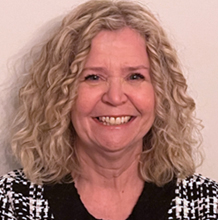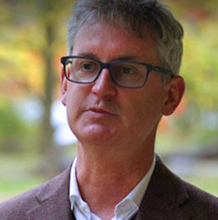Training and Career Development
The CIHR Institute of Nutrition, Metabolism and Diabetes (CIHR-INMD) is committed to supporting a new generation of health researchers in nutrition, metabolism, digestive system, kidneys and the liver. We will achieve this goal by providing important training, early career development and mentorship support to researchers. INMD embeds capacity development, and networks for support and mentorship of trainees, into each of the programs that it funds.
To receive the most up to date information regarding upcoming INMD opportunities, please subscribe to our newsletter, and consult the ResearchNet pages and opportunities listed below.
Health Research Training Platform (HRTP) Profiles
The CIHR Institute of Nutrition, Metabolism and Diabetes (INMD) is pleased to be supporting 3 of the 13 funded Health Research Training Platforms (HRTPs) as part of the HRTP Pilot. These training platforms will bring together researchers from different hospitals and universities, with a view to increase Canada's capacity to conduct research on specific disease areas and health challenges. This will help trainees and early career researchers develop skills that will increase their employability and set them up for success in careers that span academia and beyond. Participants will have access to diverse, high-quality mentors and training that builds their academic and professional development skills, such as in grant writing, project management, science communication, interdisciplinary research, open science, and knowledge mobilization.
"Throughout my career I have been committed to enhancing training and career support for the next generation of health researchers. That is why I am so pleased as Scientific Director of INMD to be able to support new training platforms in the areas of gastroenterology and liver disease, kidney disease, obesity and diabetes. These HRTPs will not only provide career development opportunities to trainees and early career researchers over the next 6 years, but their impact will be felt in decades to come as Canada's health researchers and clinicians are equipped to meet the health challenges of the future."
-
Training Researchers in the Next Generation in Gastroenterology and Liver (TRIANGLE)

Nicola L. Jones, Nominated Principal Investigator – Hospital for Sick Children
with the following Principal Investigators:- Bruce A Vallance – BC Children's Hospital
- Derek McKay – University of Calgary
Summary
There is increasing recognition of the central importance of the gastrointestinal tract in maintaining health and triggering pathophysiologic processes that lead to diseases such as inflammatory bowel disease and non-alcoholic fatty liver disease. Digestive diseases cost the Canadian economy billions of dollars each year, while the human cost of digestive diseases is incalculable. Individuals with multidisciplinary research and other skills are needed to uncover and implement novel solutions to these problems.
In order to address this need, the Canadian Digestive Health community has come together to create an innovative and holistic training program for undergraduate summer students, PhD students, postdoctoral fellows and early career researchers that will build diverse research capacity to advance digestive health for Canadians (and globally), and prepare trainees to follow their career of choice, that will often lie beyond academia (e.g. communications, teaching, biotechnology, government, policy). We will recruit and train a diverse cadre of trainees to address identified gaps in digestive health research and help trainees prepare for careers that fit their needs and interests. We will provide a multidimensional career development curriculum consisting of purpose-driven face-to-face workshops, webinars and online curriculum support, and experiential learning opportunities providing comprehensive exposure to a variety of career options beyond academia. We will provide strong and effective multi-dimensional mentorship and focus on personal wellness to support trainees' evolving needs and ensure their success. Through this program we will develop highly skilled personnel who will address the critical need to improve the digestive health of Canadians.
Additional funding support for TRIANGLE will also be provided by Canadian Association of Gastroenterology, Crohn's and Colitis Canada, Canadian Association for the Study of Liver, and The Canadian Children IBD Network: A CH.I.L.D. Foundation Initiative.
Website: TRIANGLE Canada
-
Kidney Research Scientist Core Education and Training (KRESCENT) Program 2.0

Todd Alexander, Nominated Principal Investigator – University of Alberta
with the following Principal Investigators:- Adeera Levin – University of British Columbia
- Sunny Hartwig – University of PEI
- Julie Ho – University of Manitoba
- Leanne Stalker – Kidney Foundation of Canada
- Janine Farragher – University of Toronto
- Mary Beaucage – Nipissing First Nations
- Kara Schick-Makaroff – University of Alberta
- Malcolm King – University of Saskatchewan
- Sanjay Pandeya – Canadian Society of Nephrology
- Karthik Tennankore – Dalhousie University
- Ana Konvalinka – University of Toronto
- Kevin Burns – University of Ottawa
- Francois Madore – University de Montréal
Summary
The Kidney Research Scientist Core Education and Training (KRESCENT) Program 2.0 will expand and improve the successful original program, a unique, innovative and sustained collaboration between founding partners: the Kidney Foundation of Canada, Canadian Society of Nephrology and CIHR Institute of Nutrition, Metabolism and Diabetes. The KRESCENT 2.0 platform will address the growing problem of Canadians living and dying with kidney disease, by increasing the number of well-trained kidney scientists. In addition to salary support, KRESCENT 2.0 will provide intensive hands-on experiential research training at twice-yearly meetings and through direct mentorship. KRESCENT has been successful with approximately 2/3 awardees becoming professors at Canadian universities and of those, 70% obtaining national research funding. The remaining 1/3 have gone on to careers in non-profit and private sectors.
During a formal consultation with key stakeholders including patients, non-profit, private, governmental bodies as well Indigenous scholars, we identified key aims to enhance the proposed "KRESCENT 2.0" training platform. These include; enhanced training for non-academic careers; training Black and Indigenous scholars, and how to work with racialized groups disproportionately affected by kidney disease; cultivating mental wellness of trainees; improving training in patient-oriented research; and enhancing sex and gender training in kidney research. We have created a diverse team of mentors and partners that includes multiple jurisdictions, disciplines and sectors. Together this evolution of the already successful KRESCENT program will increase the number of well-trained kidney scientists and promote new approaches to improved diagnosis, prevention, treatment and patient experiences for Canadians living with kidney disease.
Website: KRESCENT program
-
Maximize your Research on Obesity and Diabetes (myROaD): Canada-wide training and mentoring platform from molecules to communities

André Tchernof, Nominated Principal Investigator – Centre de recherche, Université Laval
with the following Principal Investigators:- Jon McGavock – University of Manitoba
- Keith Brunt – Dalhousie University
- Simon Jr Wing – McGill University
- Xiaolin Wei – University of Toronto
- Mary Forhan – University of Toronto
- Robert Screaton – University of Toronto
- Martin Sénéchal – University of New Brunswick
- Mathieu Bélanger – Université de Sherbrooke
- Denis Blondin – Université de Sherbrooke
- Heather Colquhoun – University of Toronto
- Jennifer Estall – McGill University
- Monica Parry – University of Toronto
- Geoff Ball – University of Alberta
- Christine Doucette – University of Manitoba
Summary
The overarching aims of the new Research on Obesity and Diabetes (myROaD) training platform are: (1) to optimize access to individual training trajectories, professional development, and experiential learning for a diverse population of trainees and Early Career Investigators (ECIs), to effect favorable research career outcomes in the areas of interest; and (2) to harness the strengths of regional research teams to create Canada's largest integrated, transdisciplinary training and mentoring asset in the field of obesity and diabetes. An additional major goal of our training program will be to forge collaborative links between basic and applied research teams, beyond the trainees who will participate directly in the program. We have received unprecedented enthusiastic support from a broad spectrum of researchers, who are keen to expand their programs by forming links across research pillars.
The proposed platform will leverage the expertise, successes and extensive infrastructure of the following research networks: Cardiometabolic Health, Diabetes and Obesity Research Network of Québec (CMDO), Diabetes Action Canada (DAC - a CIHR-funded national Strategies for Patient Oriented Research [SPOR] Chronic Disease Network), Obesity Canada (OC), Diabetes Research Envisioned & Accomplished in Manitoba (DREAM), Inflammation, Metabolism, Physical Ability, Research Translation (IMPART), Canadian Islet Research Training Network (CIRTN) and Diabetes Canada. This expertise will be enhanced by formal collaborations with a large number of academic, industrial, health charity and policy partners across Canada. Collectively, we will create a coordinated, innovative, diverse and equitable training and mentoring platform to maximize the career trajectories of high-caliber trainees and ECIs including those from under-served and racialized communities. Central to this proposed consortium will be the involvement of those living with cardiometabolic conditions, obesity and diabetes as partners in many of the training programs, in order to train the next generation of researchers in critical elements of patient-oriented research.
CIHR Fellowships
CIHR's Health Research Training Strategy aims to equip research trainees so that they emerge from their training as scientific, professional, or organizational leaders within and beyond the health research enterprise.
Fellowships provide support for highly qualified applicants in all areas of health research at the post-PhD degree or post-health professional degree stages to add to their experience by engaging in health research either in Canada or abroad.
Health System Impact Fellowship 2021
The Health System Impact (HSI) Fellowship provides Doctoral and Postdoctoral awardees with an experiential learning opportunity within a health system organization. Recipients will be involved in a co-developed program of work that advances the organization’s impact goals and contributes to rapid learning and improvement. Fellows have protected time for academic research, are co-supervised and mentored by a health system and academic leader and receive a professional development training allowance to support their pursuit of enriched core competency development (e.g., leadership, change management). These awards were developed and launched by CIHR’s Institute of Health Services and Policy Research (IHSPR), in partnership with nine Institutes (IA, ICR, ICRH, IHDCYH, III, IIPH, IMHA, INMD, and IPPH), the Healthy Cities Research Initiative, Michael Smith Health Research BC, the Fonds de recherche du Québec – Santé, and Mitacs.
INMD Training and Community Support Grant (2025/2026)
The INMD Training and Community Support Grant will support INMD research communities, including researchers and Partner Organizations (i.e., voluntary health sector organizations such as non-profit organizations, professional organizations and registered charities), to build training programs in research domains largely and directly relevant to the Institute's mandate.
INMD Early Career Researcher (ECR) Partnership Prize (2025/2026)
The INMD Early Career Researcher (ECR) Partnership Prize will support ECR prizes awarded by voluntary health organizations (such as non-profit organizations, professional organizations and registered charities) that recognize outstanding research related to the Institute's mandate. Partner organizations may apply directly to INMD for these awards.
CIHR Funding Results / Recipients
Congratulations to the recipients of the 2024-2025 INMD Early Career Researcher Partnership Prize:
- CIHR INMD / Canadian Nutrition Society (CNS) New Investigator Partnership Prize:
Mahsa Jessri, PhD – University of British Columbia
- CIHR INMD / Diabetes Canada (DC) Young Scientist Award: Erin Mulvihill, PhD – University of Ottawa
- CIHR INMD / Canadian Association of Gastroenterology (CAG) Early Career Investigator Partnership Prize: Neeraj Narula, BSc, MD, FRCPC, MPH – McMaster University
- CIHR INMD / Canadian Association for the Study of the Liver (CASL) Early Career Researcher Partnership Prize: Qasim Khan, MBBS, MS, FRCPC – Western University
Resources
Contact information
For more information, please contact:
Mary-Jo Makarchuk
mary-jo.makarchuk@sickkids.ca
- Date modified:


